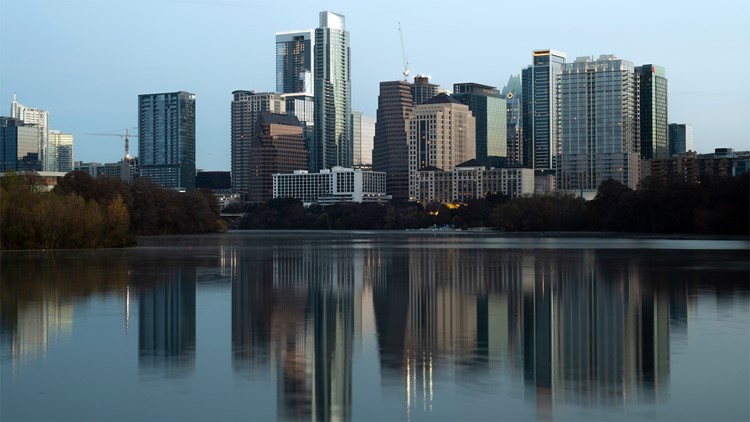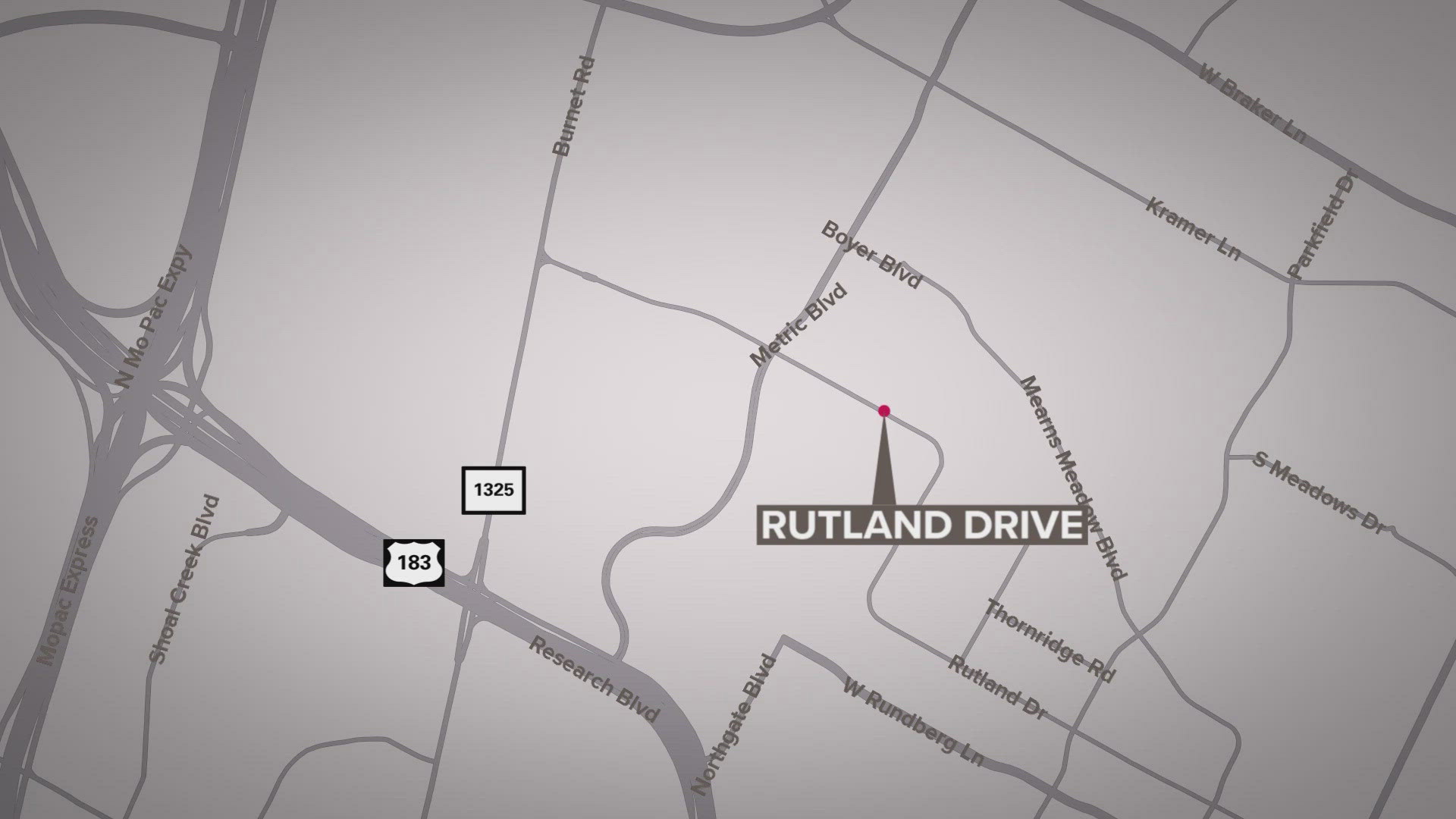AUSTIN, Texas — A new poll reveals how Austin-area residents feel about where they call home.
The Zandan Poll, created by Peter Zandan, Ph. D. is viewed as a way to use the data to foster productive dialog among all groups. The poll continues today thanks to his son, Noah, who funds it through his own resources.
More than 800 Austin-area residents were surveyed for the poll starting in late 2023, through Jan. 4, 2024. Everyone polled resides in Austin or in Travis, Williamson, Hays, Caldwell or Bastrop counties. It's the first poll conducted since the COVID-19 pandemic.
What direction is Austin headed in?
Since the 2020 poll, attitudes about Austin have remained somewhat unchanged.
Austin remains one of the fastest-growing cities in the U.S. and 40% of those surveyed believe the city is headed in the right direction, while 45% believe we're on the wrong track.
But at the national level, 21% of Austinites think the country is headed in the right direction, so Austin is almost double the national average.
Groups that viewed Austin as heading in the right direction were primarily men and those between the ages of 18 and 30. Another group that viewed Austin as heading in the right direction are people who have lived in the city for less than nine years.
Women, people over the age of 50, and those who have lived in Austin for more than 25 years, also believe Austin is headed down the wrong track.

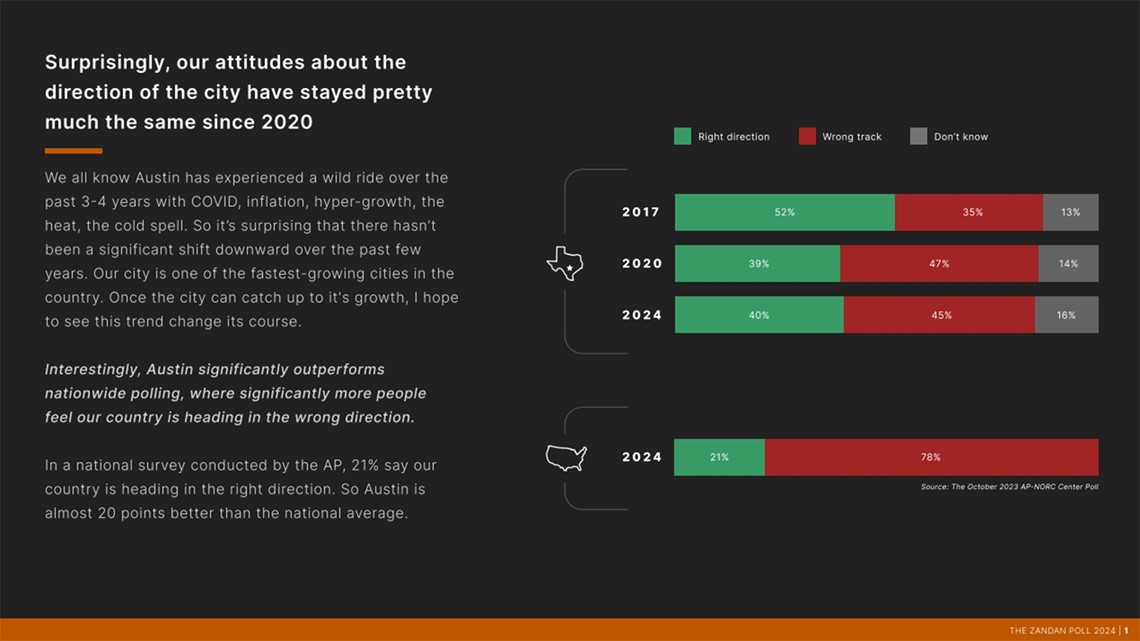
What are the most important problems facing Austin?
Crime and overcrowding ranked high in problems facing Austin, but traffic, homelessness and housing prices continue to be the most important problems to residents.
Both traffic and homelessness are the most important issues facing Austin at 43%, but those new to Austin tend to see homelessness as a bigger problem. Meanwhile, more than 50% of those surveyed who have lived in Austin for more than 25 years believe traffic is a bigger concern.
KVUE reported in 2021 that an estimated 3,160 people experienced homelessness in Austin in Travis County. That number dropped to 2,374 in 2023, according to the Ending Community Homelessness Coalition. However, ECHO said Austin's camping ban could have impacted their ability to locate everyone.

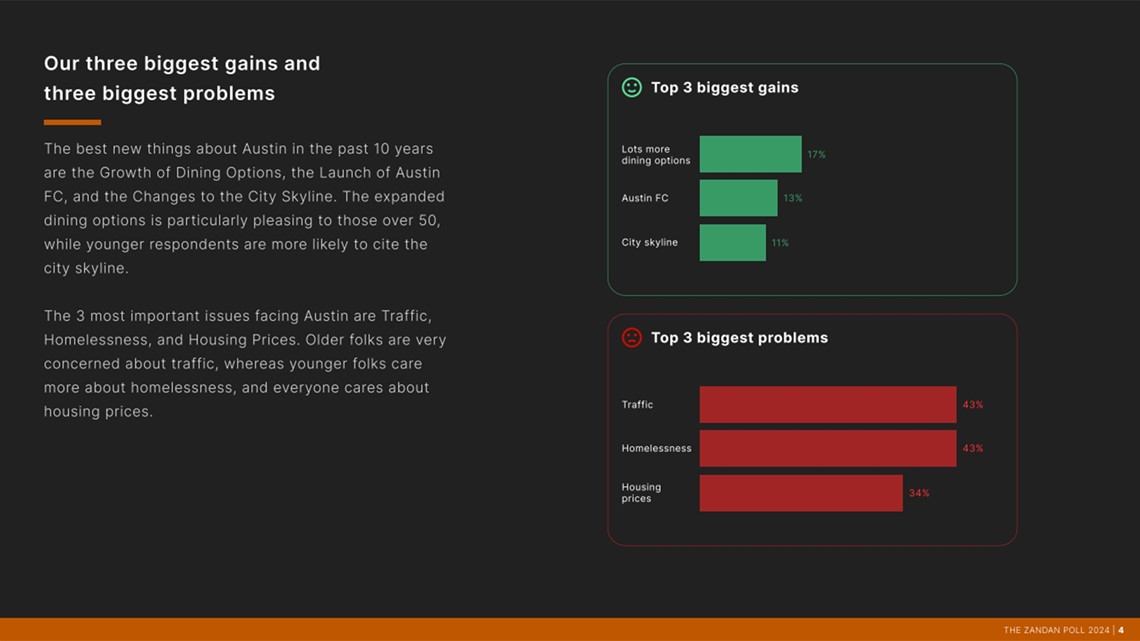
Which generation is happiest with Austin?
Millennials are the happiest with Austin at 33%, with Gen Z not far behind. Only 28% of Gen Z and Millennials think Austin is worse.
Older generations are fairly unhappy with Austin. Nearly half of Baby Boomers and those from the Greatest and Silent Generation believe Austin is doing worse.

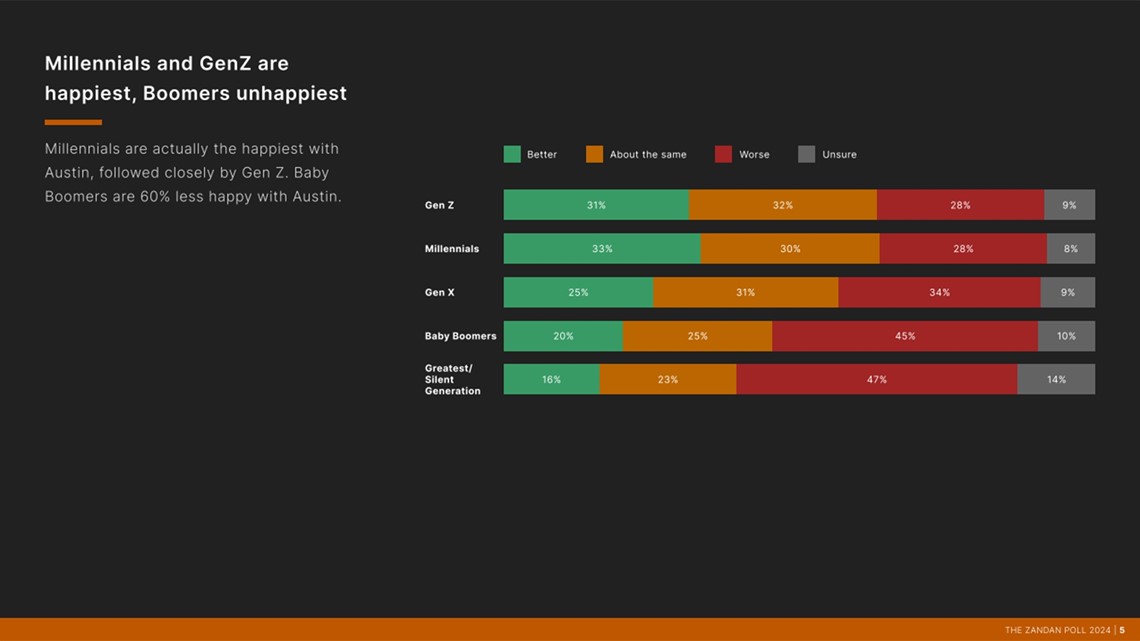
How unique is Austin?
Over time, more residents believe Austin is becoming an average major U.S. city. In 2017, 35% of Austinites believed the city was doing a good job of remaining unique and vibrant.
In 2024, nearly 50% think Austin is becoming more similar to other major cities, while a whopping 27% believe it's already there.

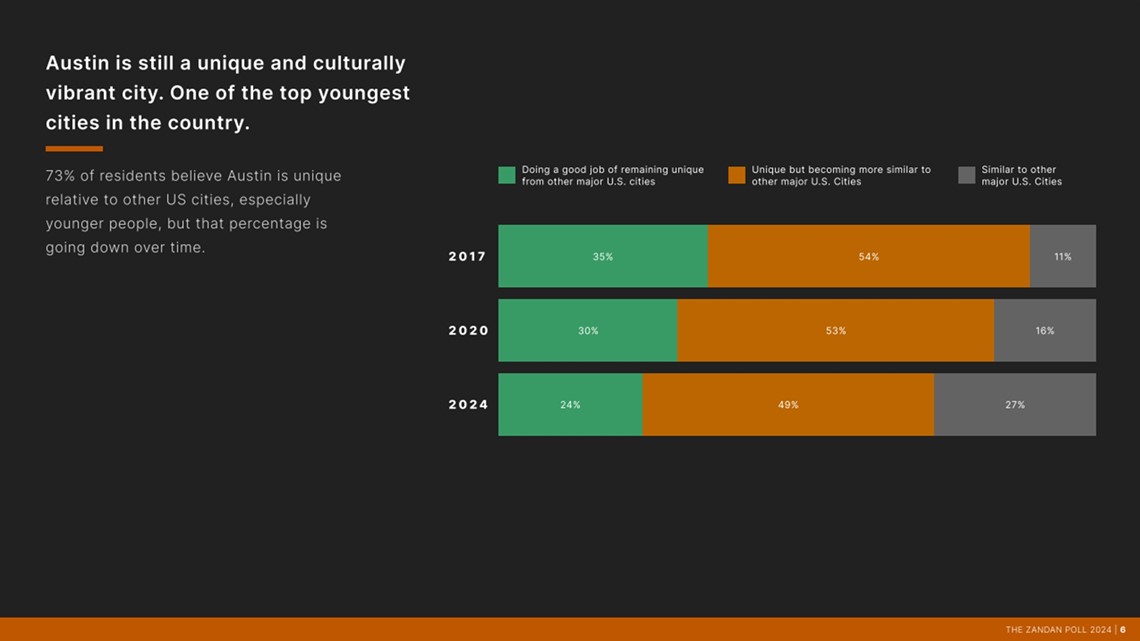
Does Austin live up to the hype?
While a majority of Austinites still believe the city lives up to the hype, there's been a bigger jump in those who don't believe it does.
In 2020, more than 70% of Austin residents had a good outlook on the positive hype around Austin, with 28% percent believing it "definitely" lives up to it. In 2024, only 21% definitely believed in Austin's positive hype, while nearly one-third of residents did not.
Regarding what cities are similar to Austin, 11% of those surveyed believe there's no city like Austin. Portland and San Antonio were selected by 10% of respondents, while Dallas and Houston scored 9% of the vote.
An overwhelming 86% still believe Austin is at risk of losing its appeal due to the rising cost of living, but that belief has been relatively unchanged since 2017.
RELATED: Austin creates academy for construction workers as city faces historic amount of infrastructure
What residents think Austin has gained and lost since 2020
A continuing trend over the last five years is Austinites believing the city has gained a larger homeless population. Those same residents believe it's the city's biggest problem besides traffic.
On the positive side, 15% of those surveyed viewed new job creation as a big gain. Additions to Austin's skyline, more dining options, and Austin FC's inception were also viewed as big gains.
While affordable housing and a lower cost of living are viewed as the biggest things the city has lost, Austin's small-town feel and sense of community are also ranked near the top by those surveyed.


